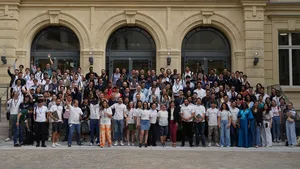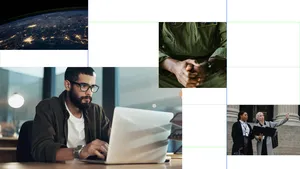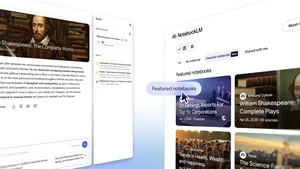3 insights from nonprofits about generative AI

Nonprofits around the world do critical work in their communities, from helping people build new skills, to studying and protecting biodiversity. But they’re also often stretched, under-resourced and weighed down by time-consuming administrative tasks.
Research shows that generative AI tools can improve productivity by 66%. That efficiency could be particularly valuable to nonprofits, taking smaller tasks off their plate in order to focus on bigger-impact efforts.
We recently surveyed more than 4,000 organizations in our Google for Nonprofits program to get a better sense of other opportunities, and obstacles, of using generative AI in the nonprofit world. Here are three insights from that survey, plus some AI tools nonprofits can start using today.
1. 75% of nonprofits said that generative AI had the potential to transform their marketing efforts.
When asked about the most immediate potential of generative AI in their work, survey participants consistently mentioned marketing tasks that involve writing or personalizing content. Whether creating effective ad copy to reach new donors or running an awareness-building campaign, effective fundraising and communication involves a lot of time-intensive customization.
With AI-powered Google Search ads, organizations can reach new audiences with relevant messages tailored to their goals. Tools like responsive search ads allow nonprofits to enter multiple headlines and descriptions for an ad, and over time, Google Ads will automatically test different combinations and learn which performs best.
For example, the United Nations Development Program (UNDP) used Google Ad Grants to serve 48 million public service announcements. That included encouraging voter registration for citizens who had upcoming elections in their area, and sharing information about local causes, like donations to support local female entrepreneurs, to those most likely to be interested in them.
To help more social impact organizations take advantage of AI-powered tools, in 2023, the Google for Nonprofits program donated more than $2 billion in Google Ad Grants and Google Workspace access to nonprofits. This gave more than 300,000 nonprofits around the world the opportunity to use AI-powered technology at no cost.
2. Two-thirds of nonprofits said a lack of familiarity with generative AI was their biggest barrier to adoption.
The survey found that four in five nonprofits think generative AI may be applicable to their work — but nearly half said their organization is not currently using the technology. And the majority of respondents said they lacked awareness of potential use cases.
We’ve seen firsthand that when nonprofits are trained on how and when to use this technology effectively, generative AI can help them support their communities in entirely new ways. For instance, generative AI-powered career coaches and tutors can provide tailored support to job seekers and students, while queryable databases can help policymakers and the public ask questions about and dig deeper into topics like the UN’s Sustainable Development Goals.
Read about other ways nonprofits are using AI, including the 21 participants in our newest accelerator focused on generative AI solutions.
3. 40% of nonprofits said nobody in their organization was educated in AI.
We heard repeatedly that while nonprofit staff are experts in their field, they’re often not technology specialists. So they’re looking for low- or no-cost, simple training on generative AI — ideally tailored to the social impact sector.
That’s why we published a productivity guide to accompany Gemini for Google Workspace, the add-on subscription now available to Google Workspace for Nonprofits users. The guide outlines ways to use these generative AI tools, like to help you write grant proposals and volunteer communications, generate images for marketing assets, organize donor databases and more. Interested nonprofits can get started today with a Gemini for Google Workspace no-cost trial.
Check out the entire report for more insights, and learn more about the Google for Nonprofits program.







